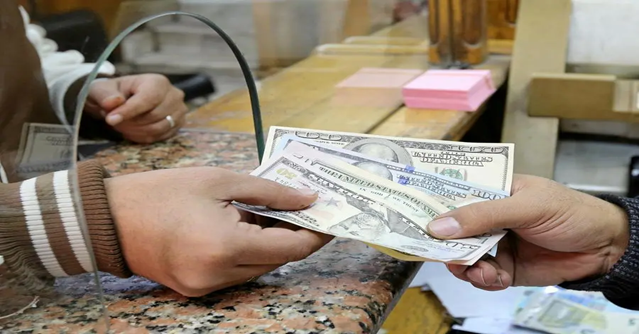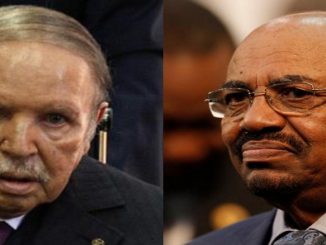
Egypt’s two biggest state banks on Tuesday issued U.S. dollar-denominated certificates of deposit with high returns, in what appears to be the country’s latest attempt to lure dollars away from the black market and back into the financial system, reported Reuters.
The North African nation is grappling with a shortage of hard currency, with the Egyptian pound having lost nearly 50% of its value against the dollar in a series of steep devaluations since March 2022.
Banque Misr and the National Bank of Egypt (NBE) are offering a three-year dollar-denominated deposit certificate with 9% annual interest to be paid upfront in Egyptian pounds.
The banks said they were offering another three-year dollar deposit certificate with a 7% yield paid quarterly in U.S. dollars.
Both certificates are offered to Egyptians and foreigners alike with a minimum deposit of $1,000.
Egypt has been struggling with rising debts and record inflation since Russia’s invasion of Ukraine exposed its economic vulnerabilities, prompting it to seek assistance from the International Monetary Fund (IMF) under a $3 billion loan program.
The country pledged to move to a flexible exchange rate regime and reduce the state’s footprint in the economy while boosting the private sector.
However, the first review under the IMF program has been postponed as the exchange rate has remained steady at around 30.85 pounds to the dollar since March.
Egypt’s Abdel Fattah al-Sisi appeared to rule out a further currency devaluation anytime soon in remarks made to a youth conference in June, saying such a move could harm national security and hurt Egyptian citizens.
Asset sale
The Egyptian government has been busy selling state assets, as it pushes for privatization, amid its continuing economic crisis.
It is a move viewed as crucial for Egypt to overcome its hard currency shortage, and an important condition tied to the $3bn International Monetary Fund loan signed in December 2022.
In February, 32 state-owned companies were put up for sale, and despite some criticism about slow progress, last week the government announced that $1.9bn worth of state assets had been sold.
The sales included stakes in petrochemical and drilling companies to the Abu Dhabi Development Fund (ADQ); stakes in seven luxury hotels sold to a subsidiary of Talaat Mostafa Group; and stakes in Al Ezz Dakhalia to its mother company, Ezz Steel. The latter two buyers are Egyptian companies.
The IMF welcomed Egypt’s asset sale, reiterating that “divesting is a critical component” of the loan agreement.
In March, an IMF review of the status of economic reforms in Egypt – to be conducted before the release of the second tranche of the loan – was postponed due to a lack of progress made by Egypt, including what was deemed a lack of privatization.
And so, with the loan necessary to ease Egypt’s worst economic crisis in decades, the government has moved to cooperate.
“The announced sales will certainly help the government’s talks with the IMF and make the IMF’s task easier – at least in the short term,” said Yezid Sayigh, senior fellow at the Malcolm H Kerr Carnegie Middle East Center. However, he added, “Egypt will face a continuing challenge to keep raising further amounts through additional sales.”
Annual inflation in Egypt has hit a record 36.8 percent, according to official statistics, with food prices rising at twice this pace. Dollars are essentially unavailable in the country, except on the black market.
Businesses suffer from import restrictions; government debt has risen tremendously; and international ratings agencies have downgraded Egypt’s credit rating. More than half of the 2023/24 budget is allocated to debt servicing.
For the IMF review to go ahead, more assets sales alone would not be enough, Sayigh noted. The IMF has also demanded that the Egyptian pound be truly freely floated on exchange markets. In the past 1.5 years, the Egyptian pound has gone through several rounds of devaluation, losing roughly half of its value, but since March this year, the official exchange rate has been steady, at between 30.8 and 30.9 Egyptian pounds to the US dollar.
On the black market, however, a dollar changes hands at about 38 Egyptian pounds. Sisi himself has suggested that no further devaluation is coming, for now, as it is putting too much of a strain on Egyptians.
The government has maintained that the crisis was caused by external shocks – the COVID-19 pandemic and the Ukraine war – while analysts have argued the shocks have exposed structural weaknesses in Egypt’s economy.



